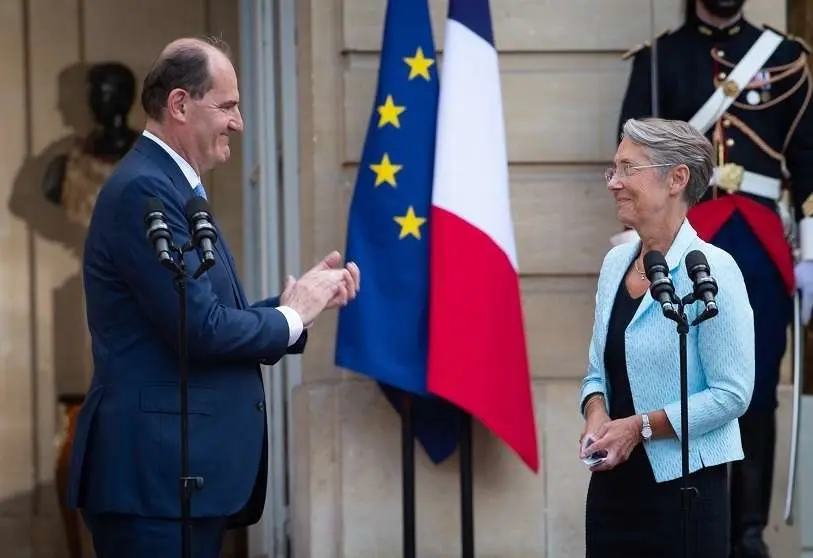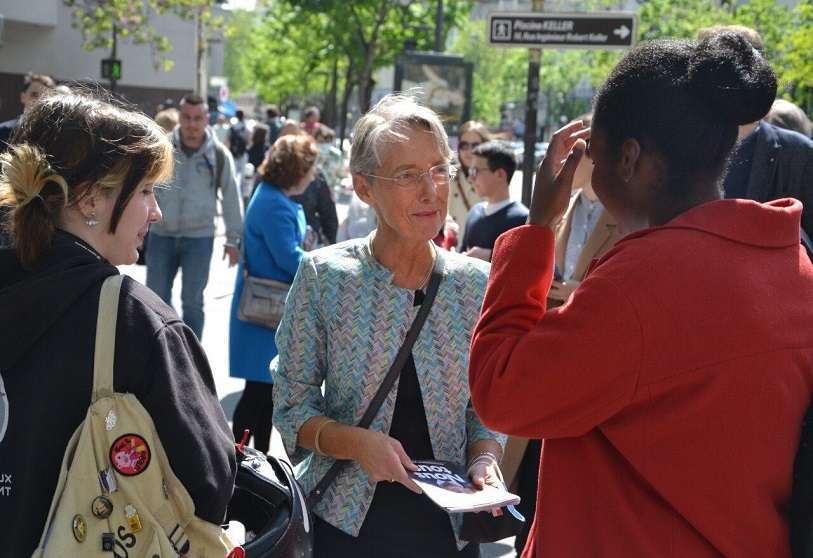Borne prepares new government in France ahead of immediate election challenge

France's new prime minister, Élisabeth Borne, began on Tuesday to prepare the new government with an eye on the important challenges it will face, starting with the legislative elections in June.
Borne, an independent although she comes from the socialist camp, met in the morning with the deputies of the government majority to discuss the general lines she wants to give to her government's actions, and then had lunch with President Emmanuel Macron. "The task ahead of us is immense," the prime minister told the deputies of the majority, according to leaks to the press of the meeting.
The new executive should be ready to hold its first council of ministers this week, but before the appointment an official body will analyse the candidates' tax and criminal status, as well as possible conflicts of interest.
The first appointment was made today, that of his chief of staff, a post to which he has appointed Aurélien Rousseau, a former communist and ex-director of the Paris region's health agency.
Chère @Elisabeth_Borne,
— Emmanuel Macron (@EmmanuelMacron) May 16, 2022
Madame la Première ministre,
Écologie, santé, éducation, plein-emploi, renaissance démocratique, Europe et sécurité : ensemble, avec le nouveau gouvernement, nous continuerons d’agir sans relâche pour les Françaises et les Français.
The government's first challenge will be to take measures to support citizens' purchasing power in the face of a sharp spike in inflation caused by both the war in Ukraine and tensions in international supply chains.
"The first duty is the social repair of a socially broken country. The social urgency is something the leaders do not understand," cried Jean-Luc Mélenchon, leader of La France Insoumise, who at the head of the left-wing coalition aspires to win the June elections and become head of government.
Borne should also quickly begin to outline how he will tackle Macron's other crucial projects, such as pension reform and the acceleration of the energy and ecological transition.
All this with an eye to the National Assembly elections on 12 and 19 June, in which the new government and Macron's presidency itself have a lot at stake, as the renewal of his majority is a condition for the adoption of his programme for the next five years.
Borne also faces a personal challenge in these elections. She has never run in an election so far, and will be running for the first time in the legislative elections in a district of the Normandy region where her mother was originally from.
The Macronist candidate won in that constituency in the second round with 68.34% of the vote in the second round against 31.66% for a rival from Marine Le Pen's far-right party, so Borne should in principle have little trouble winning the seat.
Adrien Quatennens, one of the leaders of La France Insoumise, has already stated that, for his party, if Borne does not win her seat "she would have to resign" because she would not be legitimised to lead the government.
Meanwhile, new reactions to the appointment of Borne, a 61-year-old civil engineer who in the last five years has successively held the ministries of Transport, Ecology and Labour, and who is difficult to categorise on an ideological level, continue to emerge today.
The leftist Mélenchon lived up to his reputation for incendiary words by describing the head of government as a "catechumen of neoliberalism" and a "walking caricature" of that political school.

By contrast, acting Culture Minister Roselyne Bachelot, who comes from the part of the right that joined Macron, called Borne a representative of "that social democratic left" that is "far removed from the "radicalisation of Mélenchon and "with which things can be built".
On the opposite side of the political map, the far-right Éric Zemmour considered that Borne "is a woman of the left", which in his opinion "is a sign" of where Macron wants to direct his second term in office.
Meanwhile, several trade union leaders have privately shown the press their lack of satisfaction at having Borne in front of them at the Matignon Palace, the seat of government, with regard to pension reform, after the experience of negotiating with her on issues such as the opening up of the railway sector to competition.
The head of pensions for the CGT union, Catherine Perret, warned on France Info radio station that "it would be prudent for Borne to wait for the result of the June legislative elections before opening hostilities" with the controversial reform of the retirement system, with which Macron wants to raise the retirement age from 62 to 65.









